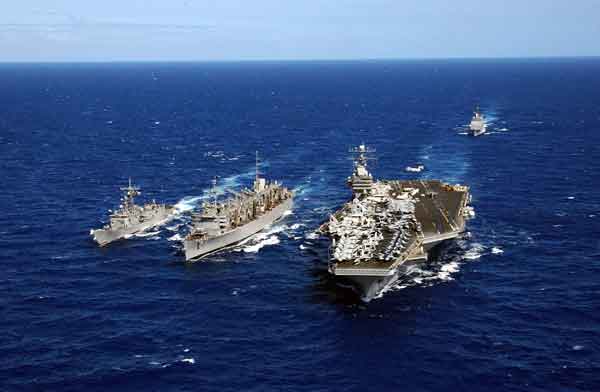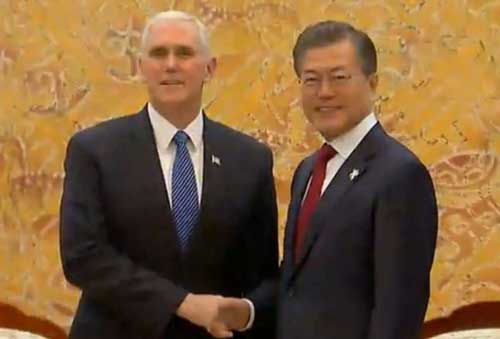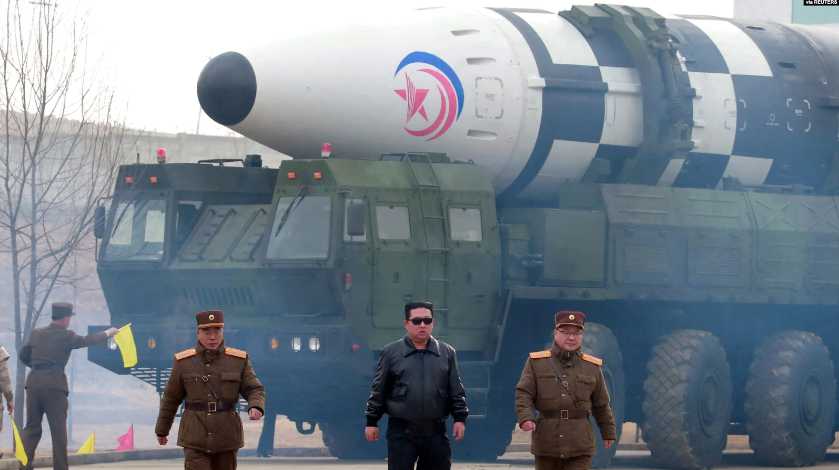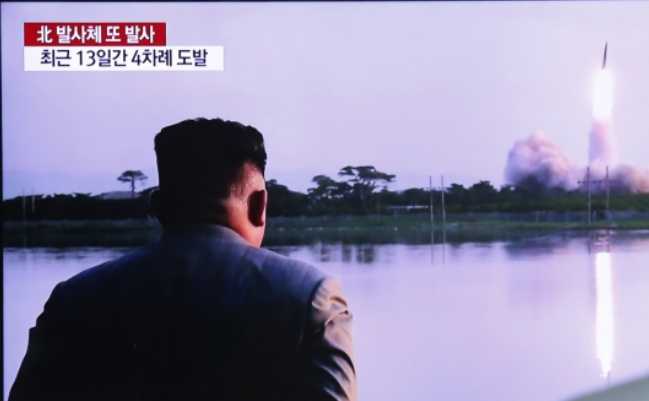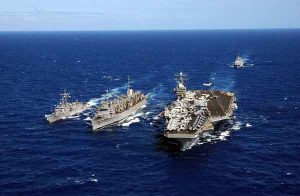
SEOUL — Analysts say confusing or deceptive messages about a U.S. naval “armada” heading to waters off the Korean peninsula undermines the United States’ credible threat of military force against North Korea.
The White House and the U.S. military’s Pacific Command were not quite accurate in early April when they said the USS Carl Vinson aircraft carrier group was en route to the Sea of Japan to respond if needed to a North Korean provocation.
Delayed deployment
The naval strike force is still far south in the Indian Ocean, where it was engaged in training exercises with Australia. The Pacific Command said on Tuesday the strike group will now proceed to the Western Pacific as ordered.
The earlier reports of the U.S. carrier group moving toward Korea raised concerns that Trump might launch a unilateral military strike to prevent or retaliate against a possible North Korean nuclear test on April 15, the birthday of the nation’s founder Kim Il Sung, that is often celebrated by a provocative weapons test.
U.S. President Donald Trump said on April 12, “We are sending an armada. Very powerful.”
North Korea did not conduct a nuclear test that weekend but instead held a massive military parade and attempted a missile test that failed.
The perceived communications mix-up discredits some of the tough rhetoric coming from the Trump administration.
“If you threaten them and your threat is not credible, it’s only going to undermine whatever your policy toward them is,” said North Korea expert Joel Wit at the 38 North monitoring group, run by Johns Hopkins University’s School of Advanced International Studies.
Vice president’s stern warnings
U.S. Vice President Mike Pence did not mention the delay in sending the Carl Vinson group Wednesday when he addressed American military forces aboard the USS Ronald Reagan, a Nimitz class aircraft carrier undergoing maintenance in Yokosuka, Japan.[xyz-ihs snippet=”adsense-body-ad”]Pence instead repeated stern warnings to Pyongyang that he made earlier in Seoul and Tokyo, not to test America’s resolve. He again referenced Trump’s decisions to launch missile strikes in Syria and Afghanistan, and said the United States is fully prepared to use military force if needed.
“Those who challenge our resolve or our readiness should know, we will defeat any attack and meet any challenge and use conventional or nuclear weapons with an overwhelming and effective American response,” the vice president said.
Emerging North Korea policy
The U.S. policy on North Korea as articulated by the vice president is to use the threat of military force to increase pressure on Pyongyang to unilaterally dismantle its nuclear and missile arsenals, and to urge China, for the most part, to take stronger measures to force its economically dependent ally to capitulate or face total collapse.
For this policy to be effective the threat of force must be credible, said analyst Bong Young-shik with the Yonsei University Institute for North Korean Studies in Seoul.
“Without taking the risk of military action on the Korean Peninsula you cannot really dissuade the leadership in Pyongyang from continuously pursuing and possessing nuclear weapons and missile programs,” he said.
However, Northeast Asia analyst Daniel Pinkston with Troy University in Seoul, said this policy of increased military pressure is not only weakened by mixed messages over deploying a naval strike force, but also by widespread opposition among important allies such as Japan and South Korea.
“They are not going to support some military adventurism to take a gamble with the execution of some preventive military operation against North Korea. It’s just not going to happen,” said Pinkston.
For all its provocative missile and nuclear tests the Kim Jong Un government has not yet attacked another country. If the Trump administration were to launch a preemptive or preventive strike against North Korea under the current conditions, Pinkston said, it would likely lead to disastrous results: drawing the region into war, terminating regional alliances, and isolating the United States in the U.N. Security Council.
Despite the tough rhetoric there have also been contradictory statements coming from other Trump administration officials who have downplayed the possible use of force. National Security Adviser H.R. McMaster Sunday said, “It’s time for us to undertake all actions we can, short of a military option, to try to resolve this peacefully.”
Youmi Kim contributed to this report
Source: VOA [xyz-ihs snippet=”Adsense-responsive”]

